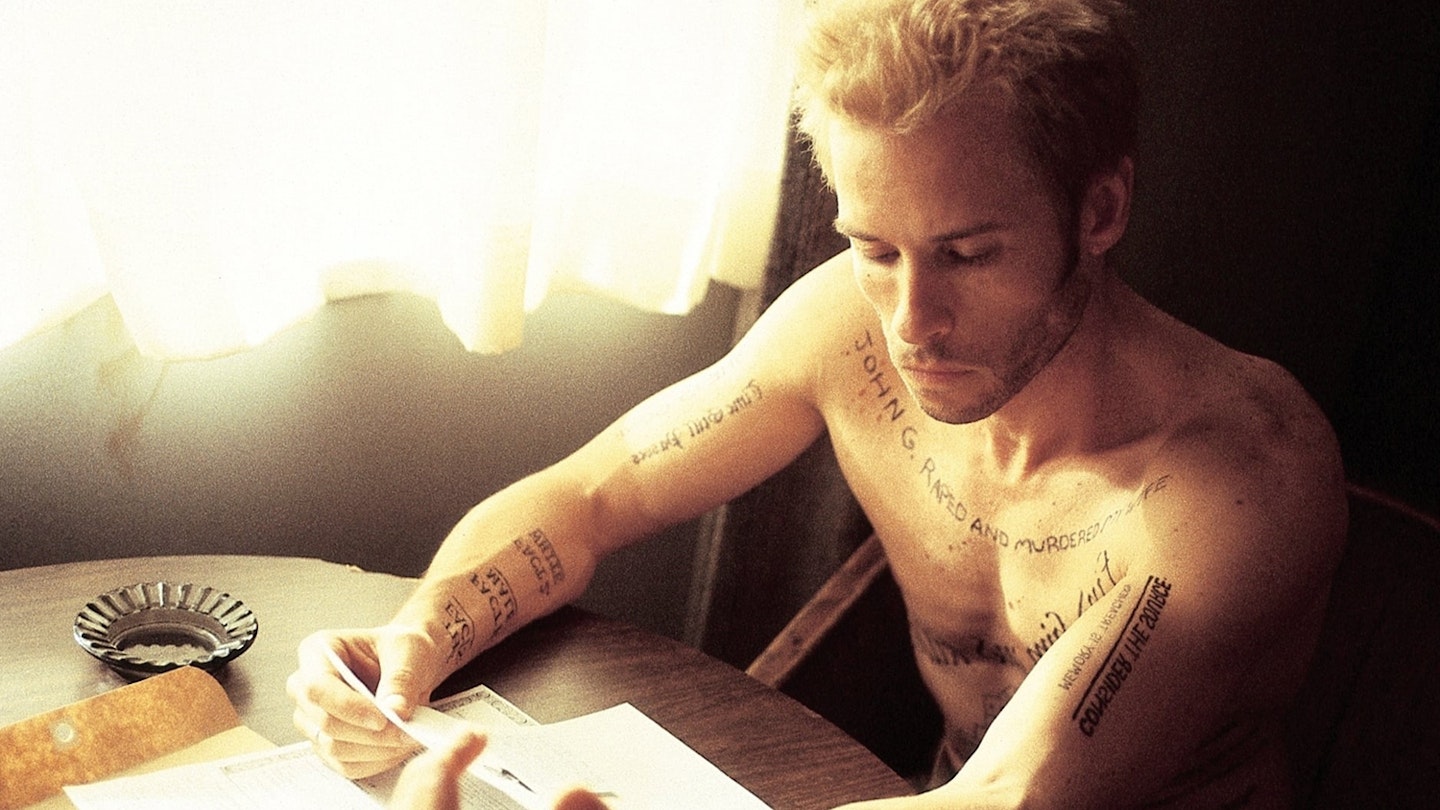Christopher Nolan’s Tenet finally arrives in UK cinemas next week – so we’re celebrating on Empire Online with Nolan Week, dedicated to the director’s most miraculous movies. Before Batman, Bane, and blockbusters, Nolan grabbed attention with his cerebral reverse-order thriller Memento, starring Guy Pearce as protagonist Leonard, trying to solve the mystery of his wife’s murder – not helped by his short-term memory loss. Speaking to Empire in 2019, Pearce spoke about his experiences working with Nolan back in the year 2000.
———

GUY PEARCE: It’s 20 years ago this year that we made Memento. It was around July of ’99. I’d been sent the script to look at and immediately went, ‘Oh wow, this is just fantastic.’ The way in which it’s told is twisted, it’s unconventional, but it also feels very emotional. Even in the face of it running backwards, Chris was still adhering to film conventions [in terms of] getting to know a character. It was handled so simply and beautifully. I felt I could really latch onto that fantastic character who’s in a very particular dilemma with a very particular issue, this memory loss. It’s a wonderful script.
I got to meet Chris, then I saw Following, and then I called him and I said, ‘Look, I’m really embarrassed to be doing this. But I hear people tend to respond to this sort of thing, so I’m just gonna do it: I’m calling to tell you that I really love this and I’d really love to do it. If my enthusiasm plays any part in you making a decision about who you cast, then I’m just letting you know that I’m really keen.’ I was so in love with the script and so in love with the idea of doing it that I just felt I needed to express something. It’s the only time I’ve ever done that. And Chris, in his typical non-committal fashion, wasn’t gonna gush at my attempt at flattery. He just went, ‘Oh right. Okay, well good to know. Thank you.’ And eventually I got offered the film.
It wasn’t just about understanding the film, it was understanding Chris and what he wanted to make.
We had two weeks of rehearsals, which was really valuable. All of what’s in Chris’ head is quite massive. So it wasn’t just about understanding the film, it was understanding Chris, to a degree, and what it is he wanted to make. But the basis of what this character was experiencing was realised in a really beautiful way — the front he’s putting up because of his condition is so evident in the dialogue. And I’ve never worked on a film ever again where what’s there on the page is what’s there on the screen. It was tight from start to finish. It just shows you Chris’ ability to see the big picture.
I remember doing a scene in Carrie-Anne Moss’ character’s [Natalie] house, and after a couple of takes Chris said, ‘That line’s not really working.’ And I remember thinking, ‘Yeah, actually it’s not really working for me either. I’m not managing to say this very convincingly.’ And he said, ‘Just adjust it to this.’ He was so spot on with that sort of stuff. He just was over everything, so wonderfully focused on every detail. He’s got the intellectual and emotional capacity to handle every little nuanced moment between every character, as well as exactly what camera movement should be made, when the zoom should start, when it should focus from here to here... Just incredible.

The term ‘actor’s director’ feels like it exists in the face of those directors that aren’t actor’s directors, they’re all about camera, movement, the picture. Well, Chris is everybody’s director. He’s an art director’s director, a cinematographer’s director, an actor’s director.
I thought, ‘Wow, I’m really working with someone who’s fantastic.’ Not just because of how clever he was, and how honest and humble he was, but how communicative he was about what he wanted to achieve and how he was gonna achieve it through the technical channels, how he wanted to shoot it. But also equally adept at analysing and breaking down the emotions of the characters, the moments within scenes, why he wanted to push in on a close-up at this moment, because he felt that that would actually trigger something that somebody saw in a scene five scenes ago. I was completely intimidated, completely inspired, completely enamoured.
I will take this to my grave: I feel so proud and pleased that I got to have that experience because that doesn’t come along very often. I’ve worked with great people: Ridley Scott, Kathryn Bigelow, Curtis Hanson, and they’re all fantastic, wonderful people, but Chris is unique. A very special human being. It was one of the greatest experiences of my life.
